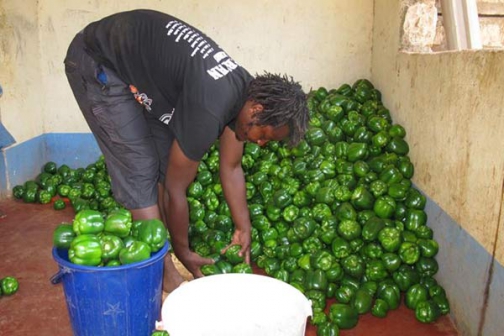×
The Standard e-Paper
Fearless, Trusted News

As a young boy, Bernard Sila had a dream of becoming either a lawyer to fight for the rights of the less fortunate or a farmer to feed not only residents of dry areas of Ukambani, but also entire country and beyond.
At the time, Sila, now 23, was in Standard Five at Mwiki Primary School in Githurai, Nairobi. Every time he visited his rural home of Kisikioni in Tala, Machakos County, he would get stories of locals suffering and starving due to lack of enough food, largely caused by drought.